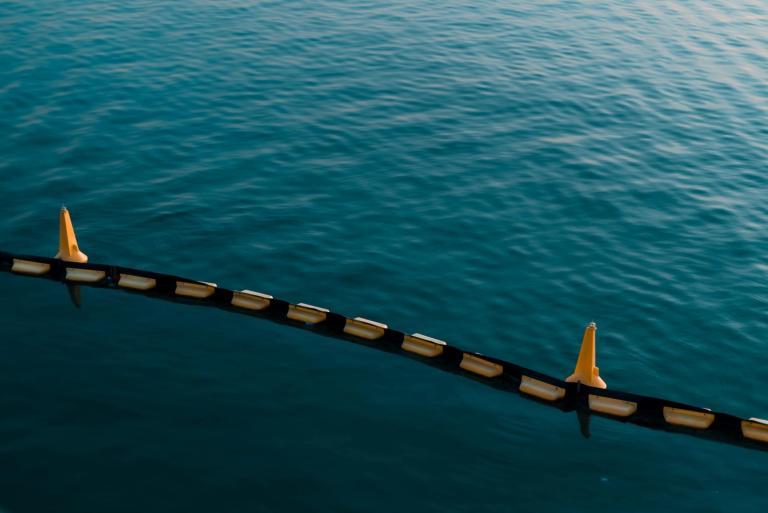The objective of this call for proposals is to facilitate the implementation of Maritime Spatial Planning in the EU, including through the effective application of Directive 2014/89 establishing a framework for MSP.
This call is intended to fund projects to develop innovative responses to tackle specific challenges that EU Members States might encounter when putting into effect, monitoring and/or revising their maritime spatial plans.
Many of these challenges are common to coastal Member States. There is thus a shared interest in developing innovative responses that can apply within a sea basin and/or across sea basins. This means that projects should bring together participants from different Member States, located in a sea basin, or from different sea basins.
To meet these challenges Member States will have to:
• Reflect and align their maritime spatial plans to the ambition of the European Green Deal and the related initiatives in areas such as climate change mitigation and/or adaptation, biodiversity, food, mobility, energy transition, alongside established activities and interests.
• Cater for cumulative impacts of ocean stressors: promote the use of an ecosystem-based approach, including Environmental Impact Assessments (EIAs), and strengthen the process of the Strategic Environmental Assessments (SEAs), which are an integral part of MSP.
• Reinforce the sea basin dimension of MSP: meeting the above mentioned challenges, and integrating the new EU initiatives, will require greater cooperation in planning activities in the different sea basins. A good example of this is the North Sea, where coastal Member States have set up structures to strengthen the coordination when deploying offshore wind energy (North Seas Energy Cooperation, with a dedicated support group on MSP - DG MARE is co-chairing this group).
• Making MSP digital and pan-European: the European MSP Platform will work with EMODNET to harmonise data and to disseminate the contents of these plans through a common or shared digital platform. EMODNET, in combination with the MSP Assistance Mechanism, constitute a platform unique in the world for this endeavour. The Commission's support for Member States will act as a catalyst. It will also encourage Member States to ensure broad stakeholder involvement and efficient monitoring and enforcement schemes.
Proposals are expected to develop innovative responses to tackle the above mentioned specific challenges that EU Members States might encounter in the implementation and/or revision of their maritime spatial plans.
Hereunder is a list of examples of "Priorities” related to the aforementioned challenges:
• MSP as an enabler of the European Green Deal: development of a clean, circular blue economy, preserving and protecting biodiversity in the marine environment (in particular with spatial measures), facilitating the supply of clean, affordable and secure, energy, enabling the provision of healthy and environmentally-friendly food from the sea. Climate proofing of MSP, including incorporating adaptation and mitigation actions and/or strategies into MSP, making MSP flexible and adaptive to respond to climate change.
• Facilitate/enable the development of an economic sector (e.g. tourism and maritime/underwater cultural heritage, offshore wind energy, aquaculture) in the maritime domain: ex-ante assessments (Strategic Environmental Assessment, Environmental Impact Assessment); multi-use in project design and licensing/permits; development of a regulatory framework for multi-use, including Land Sea Interactions (LSI); allocation of sufficient sea space, resolution of conflicts with other uses, enabling synergies with other sectors / activities.
• Applying the Ecosystems Based Approach (EBA) in MSP: designing maritime spatial plans to integrate objectives and measures of other EU instruments (e.g. the Marine Strategy Framework Directive) with the aim to reduce collective pressures and ensuring that marine ecosystems are in a healthy, productive and resilient condition.
• Developing strategies and approaches to review/revise maritime spatial plans to make them future proof (see Priority 1), more integrated and more coherent, especially in a sea basin context.
• Addressing gaps and challenges in the collection, integration, use, re-use, access, including to data produced by non-public actors, of data in the MSP context: using best available data and instruments to prepare, monitor and revise maritime spatial plans. Developing data tools, models and infrastructures, allowing for interoperability and enabling Member States to share MSP data and information, especially in a cross-border and sea basin context.
• Promoting ocean governance through MSP: incorporating oceans' governance tools into the MSP process and in maritime spatial plans. For example by enabling stakeholder participation in governance schemes and instruments (e.g. management of marine resources, protection of the environment or of the underwater cultural heritage), by providing capacity building and facilitating joint and/or coherent planning in a sea basin context, or by promoting cooperation with third countries in issues of common interest in a sea basin or a shared ocean space.
Priority will be given to proposals that build on the outcome of prior MSP related projects, relevant to the objectives of the call. In this context, proposals should describe how they build on, complement and differ from finalised or ongoing research and innovation projects, including from EU programmes, where relevant. In case a proposal includes activities a particular sea basin in which a dedicated sea basin strategy or similar initiative exists, priority will be given to proposals that explain how they contribute to the objectives of the relevant sea basin strategy or initiative
Proposals must be submitted by a consortium of at least 2 applicants (beneficiaries; not affiliated entities), which complies with the following conditions:
• Minimum 2 entities from 2 different eligible countries.
• Applicants must be public authorities or bodies in charge of maritime spatial planning of those coastal Member States which are responsible for MSP in the selected area. Other public authorities or bodies shall be considered eligible applicants provided that they are endorsed by the public authorities or bodies in charge of maritime spatial planning at national level in the related coastal Member States.
• The coordinator must be established in an EU Member State.

